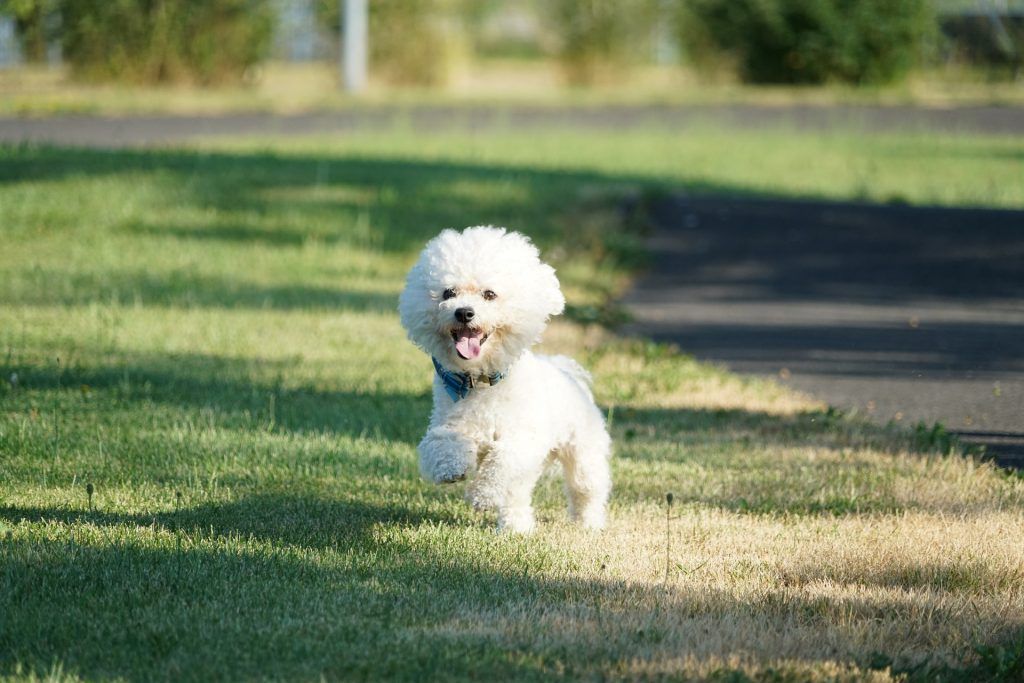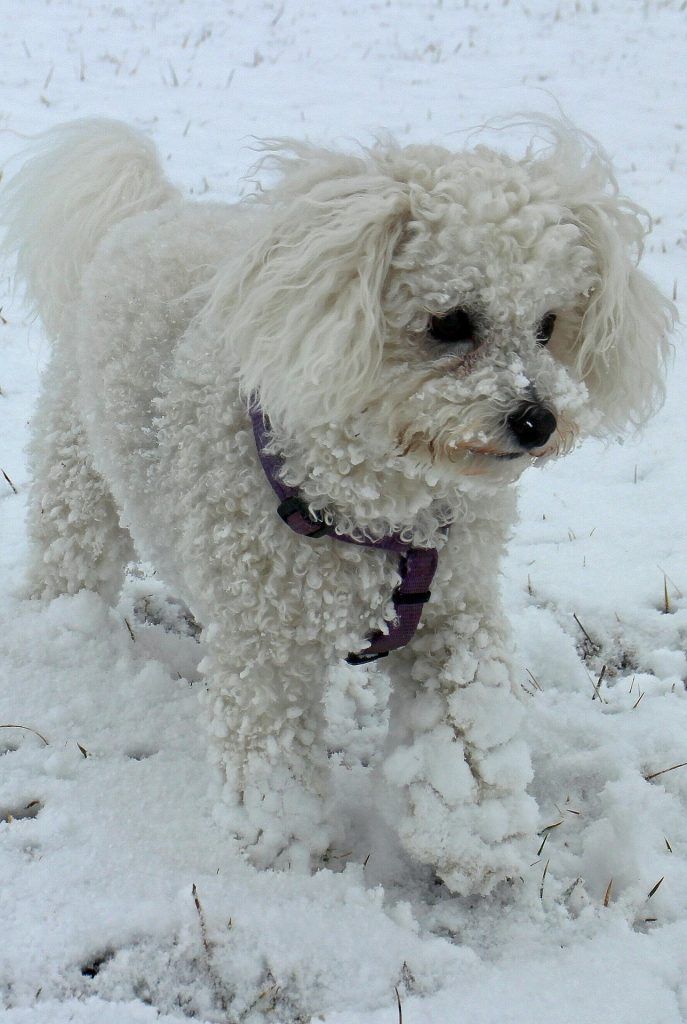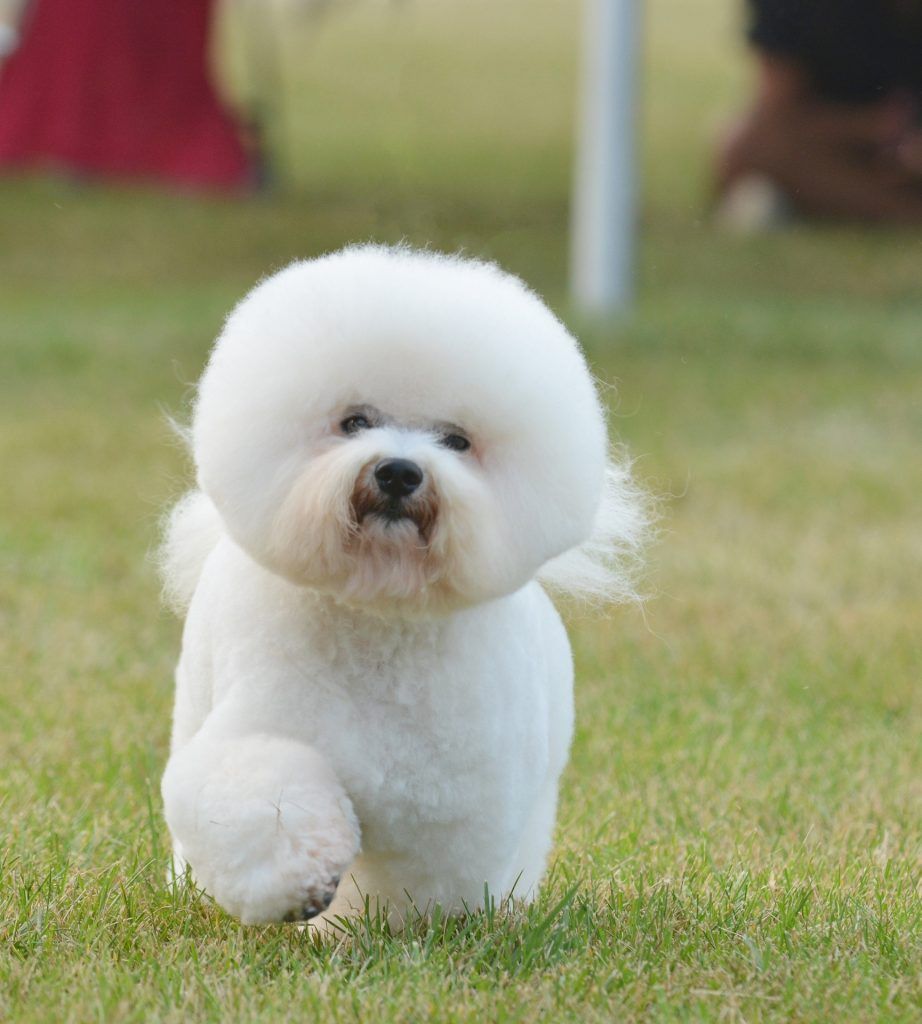The Bichon Frise is known for its fluffy white coat, cheerful personality, and affectionate nature. They are also great for allergy sufferers; they shed very little and have a hypoallergenic coat. This article will tell you everything you need to know about this adorable breed, from its history and characteristics to its health and grooming needs.
The History of the Bichon Frise
The Bichon Frise is a descendant of the Barbet, a water spaniel that originated in the Mediterranean area. The Barbet was crossed with smaller dogs to create several breeds, including the Maltese, the Havanese, and the Bichon Frise. The name “Bichon Frise” means “curly lap dog” in French, and it reflects the breed’s appearance and temperament.
The Bichon Frise was popular among the nobility in Europe since the 14th century. It was especially favored by the French royal court, where it was pampered and adorned with ribbons and bows. The breed also traveled with sailors and traders to countries such as Spain, Italy, and Belgium. One of the places where the Bichon Frise found a home was the Canary Islands, where it was called the “Bichon Tenerife.”
The Bichon Frise enjoyed its early success until the French Revolution in the late 18th century when it fell out of favor with the aristocracy. The breed was then abandoned on the streets or sold to circuses and fairs, where it performed tricks and entertained crowds. The Bichon Frise survived these hard times thanks to its intelligence and charm.
French breeders rediscovered the breed in the early 20th century and standardized its appearance and temperament. The Bichon Frise was recognized by the French Kennel Club in 1933 and by the American Kennel Club (AKC) in 1973. Today, the Bichon Frise is a popular companion dog in many countries, ranking 45th in the AKC breed popularity ranking.

Characteristics of a Bichon Frise
The Bichon Frise is a small dog weighing 10 to 18 pounds and standing between 9 to 12 inches at the shoulder. It has a round head, dark eyes, drop ears, a black nose, and a curly tail that is carried over its back. The most distinctive feature of the Bichon Frise is its coat, which is white or cream-colored and consists of a soft dense undercoat and a coarse curly outer coat. The coat gives the breed a fluffy and puffy appearance that resembles a cotton ball or a powder puff.
The Bichon Frise has a lively and playful personality, making it a great family pet. It is friendly with everyone, including children, strangers, and other animals. It loves to be around people and craves attention and affection. It is also very smart and trainable, as it learns quickly and enjoys pleasing its owner. The Bichon Frise can perform various tricks and excel in activities such as agility, obedience, rally, and therapy.
The Bichon Frise is not a demanding dog when it comes to exercise. It is happy with a daily walk or play session in a fenced yard or park. However, it does not like to be left alone for long stretches of time, as it can develop separation anxiety or boredom. The Bichon Frise needs regular human interaction and mental stimulation to keep it happy and healthy.

Interesting Facts about the Bichon Frise
- The Bichon Frise is sometimes called the “Bichon à poil frisé,” which means “curly-haired lap dog” in French. It is also known as the “Tenerife Dog,” the “Bichon Tenerife,” or the “Purebred Bichon.”
- The Bichon Frise has a cheerful and expressive face that often looks like it is smiling. This is because of its black lips that contrast with its white coat and its dark eyes that sparkle with mischief.
- The Bichon Frise is one of the few breeds that can change color as it ages. Some puppies are born with cream, apricot, or buff patches on their coat, but these usually fade to white by the time they are one year old. However, some dogs may retain some color on their ears or body throughout their life.
- The Bichon Frise is a very adaptable dog that can live in any environment, from a small apartment to a large house. It can also tolerate different climates, from cold to hot, as long as it is not exposed to extreme temperatures for too long.
- The Bichon Frise is a very sociable dog that loves to make friends with everyone. It can get along well with other dogs, cats, and even birds. However, it may chase small animals, such as squirrels or rabbits, if it sees them as prey.
- The Bichon Frise is a very vocal dog that likes to communicate with its owner and other people. It can bark, whine, growl, or howl to express its feelings or needs. It can also make a unique sound called the “Bichon Blitz,” a high-pitched squeal indicating excitement or happiness.
- The Bichon Frise is a very athletic dog that can perform amazing feats of agility and speed. It can jump up to six feet high, run up to 25 miles per hour, and turn on a dime. It can also balance on its hind legs and walk or dance like a human.
Health and Grooming for a Bichon Frise
The Bichon Frise is generally a healthy dog that can live up to 15 years or more. Like any breed, they can be prone to certain health issues that owners should be aware of. Some of these include:
- Allergies: The Bichon Frise can suffer from skin allergies that cause itching, redness, inflammation, or infection. These can be triggered by environmental factors such as pollen, dust mites, fleas, or food ingredients. Owners should consult their veterinarian for diagnosis and treatment options.
- Ear infections: The Bichon Frise’s drop ears can trap moisture and dirt inside them, leading to ear infections that cause pain, odor, discharge, or hearing loss. Owners should check their dog’s ears regularly and clean them gently with a cotton ball or a soft cloth moistened with an ear cleaner recommended by their veterinarian.
- Dental care: The Bichon Frise’s small mouth can make it prone to dental problems such as plaque buildup, tartar formation, gum disease, or tooth loss. Owners should brush their dog’s teeth daily with a dog toothpaste and toothbrush or use dental chews or toys to help prevent these issues.
- Cruciate ligament disease: The cruciate ligament is a band of tissue that stabilizes the knee joint in dogs. It can tear or rupture due to injury or degeneration over time, causing lameness or instability in the affected leg. Owners should monitor their dog’s gait and seek veterinary attention if they notice any signs of limping or discomfort.
- Patellar luxation: The patella is the kneecap that slides up and down in a groove on the femur (thigh bone) in dogs. It can slip out of place (luxate) due to congenital malformation or trauma, causing pain or difficulty in moving the leg. Owners should watch for any signs of skipping or hopping in their dog’s movement and consult their veterinarian for diagnosis and treatment options.

The Bichon Frise requires regular grooming to maintain its coat’s beauty and health. Owners should brush their dog’s coat daily with a slicker brush or a metal comb to remove mats, tangles, dirt, or debris. They should also trim their dog’s coat every four to six weeks with scissors or clippers to keep it neat and tidy. Some owners prefer to take their dogs to a professional groomer who can give them a specific style, such as a puppy cut or a show cut.
Owners should also pay attention to other aspects of their dog’s grooming, such as clipping their nails every two to four weeks with nail clippers or a grinder, cleaning their eyes with a damp cloth or eye wipes, wiping their face with a soft cloth or facial wipes; bathing them every four to eight weeks with a mild shampoo; applying flea and tick prevention products as recommended by their veterinarian; checking their anal glands for any signs of impaction or infection; and spaying or neutering their dog if they do not intend to breed them.
Where to Buy a Bichon Frise
This popular breed is not especially rare or hard to find. The average price of a Bichon Frise puppy from a reputable breeder is around $1500, but it can vary depending on the location, the reputation, and the demand of the breeder.
You can find Bichon Frise breeders in your area by searching online or asking for referrals from your veterinarian, your friends, or your local dog club. You can also contact the Bichon Frise Club of America (BFCA), which is the official parent club of the breed in the United States. The BFCA can provide you with a list of approved breeders who follow their code of ethics and standards. You can also check their website for more information about the breed and its care.
If you want to adopt a Bichon Frise instead of buying one, you can also check your local animal shelters or rescue groups specializing in this breed. You can also search online for Bichon Frise rescue organizations that can help you find a suitable dog for your family. Adopting a Bichon Frise can be a rewarding experience, as you will be giving a second chance to a dog that needs a loving home.
The average adoption fee for a Bichon Frise is around $300, but it can vary depending on the dog’s age, health, and personality. Be prepared to pay for any medical or behavioral issues that your dog may have before or after adoption. Try to spend time with the dog at the shelter before adoption so you can judge its personality and behavior. Adopting a dog in need of a home comes with its own challenges but can also benefit from a unique bond you’ll never find elsewhere.
Conclusion
The Bichon Frise is an adorable breed that will make anyone fall in love with it at first sight. But it is more than just a cute and fluffy dog. It is a loyal and loving companion that will fill your life with joy and happiness. It is a breed that will suit anyone who wants a cheerful and playful friend who will always be by their side. It is a breed that will make you smile every day with its adorable face and charming personality.
More Dog Breeds
If you’re interested in learning about similar dog breeds, check out:
Or Browse other breed articles.
FAQ
What do Bichon Frise usually die from?
Bichon Frise can live up to 15 years or more but also suffer from some health issues that can shorten their lifespan. Some of the common causes of death for Bichon Frise are cancer, heart disease, kidney disease, and liver disease.
Do Bichon Frise shed?
Bichon Frise have a double coat that consists of a soft dense undercoat and a coarse curly outer coat. They shed very little and have a hypoallergenic coat that does not produce much dander or saliva. However, they still need regular brushing and grooming to prevent mats, tangles, and dirt from accumulating in their coat.
When is a Bichon Frise full grown?
Bichon Frise are small dogs weighing 10 to 18 pounds and standing between 9 to 12 inches at the shoulder. They reach their adult size and weight by the time they are one year old. However, they may continue to grow in height or length until they are two years old.
Are Bichon Frise hypoallergenic?
Bichon Frise are considered to be hypoallergenic dogs, as they shed very little and have a coat that does not produce much dander or saliva. This means they are less likely to trigger allergic reactions in people sensitive to dog allergens. However, no dog is completely allergen-free; some people may still react to Bichon Frise.
How much does a Bichon Frise cost?
The cost of a Bichon Frise puppy can vary depending on the location, the reputation, and the demand of the breeder. The average price of a Bichon Frise puppy from a reputable breeder is around $1500, but it can range from $800 to $2500.
























